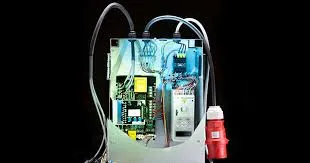The Benefits and Applications of Liquid Rubber Electrical Insulation
Liquid rubber electrical insulation is an innovative solution for protecting electrical components and circuits from environmental factors, moisture, and other potential hazards. Its versatility and effectiveness make it an ideal choice for various applications in industries such as automotive, telecommunications, and consumer electronics. This article explores the benefits, properties, and applications of liquid rubber in electrical insulation.
What is Liquid Rubber?
Liquid rubber is a polymer-based material that can be applied as a liquid and then cured to form a durable, elastic insulation layer. It typically consists of synthetic rubbers such as silicone or polyurethane, offering a flexible and resilient coating. The application process often involves spraying or brushing the liquid rubber onto surfaces, where it adheres and forms a waterproof barrier upon curing.
Advantages of Liquid Rubber Electrical Insulation
1. Water Resistance One of the most significant advantages of liquid rubber electrical insulation is its excellent water resistance properties. This characteristic is crucial for protecting sensitive electrical components from water ingress, which can lead to short circuits and equipment failure. Liquid rubber forms a seamless, waterproof layer that keeps moisture and contaminants at bay.
2. Flexibility and Durability Unlike traditional insulation materials, liquid rubber provides superior flexibility, making it suitable for applications where components may experience vibrations or movement. This flexibility ensures that the insulation does not crack or break under stress, prolonging the lifespan of the electrical equipment.
3. Versatile Application Liquid rubber can be applied to a variety of surfaces, including metal, plastic, and wood. This versatility allows it to be used in various applications, ranging from protecting wiring harnesses in vehicles to coating circuit boards in electronic devices. Its ability to conform to different shapes and sizes makes it an ideal choice for custom applications.
4. Chemical Resistance Liquid rubber is resistant to many chemicals, including oils, solvents, and acids. This property is particularly beneficial in industrial settings where equipment may be exposed to harsh environments. The chemical stability of liquid rubber ensures that it maintains its insulating properties over time, even in challenging conditions.
5. Temperature Tolerance Liquid rubber can withstand a wide range of temperatures, making it suitable for both high- and low-temperature applications. This thermal stability ensures that electrical components remain safe and functional, regardless of the operating environment.
liquid rubber electrical insulation

6. Ease of Application The application process for liquid rubber is relatively straightforward. It can be easily sprayed, brushed, or rolled onto surfaces, enabling quick and efficient insulation solutions. This ease of application reduces labor costs and downtime, making it an attractive option for manufacturers and technicians.
Applications of Liquid Rubber Electrical Insulation
1. Automotive Industry In the automotive sector, liquid rubber is used to insulate wiring harnesses, electrical connectors, and circuit boards. It protects these components from moisture, dust, and road salt, ensuring the reliability of electrical systems in vehicles.
2. Consumer Electronics Many electronic devices, such as smartphones and tablets, benefit from liquid rubber insulation. It is applied to circuit boards and internal components to prevent water damage and enhance durability. With the rise of waterproof devices, liquid rubber has become an essential material for manufacturers.
3. Telecommunications Liquid rubber insulation is also utilized in the telecommunications industry to protect cables and equipment from environmental effects. It forms a reliable barrier against moisture and contaminants, ensuring optimal performance of communication systems.
4. Industrial Applications In industrial environments, liquid rubber insulation is used to safeguard machinery and electrical equipment from harsh conditions. Its chemical and temperature resistance makes it suitable for protecting components in factories, processing plants, and outdoor installations.
5. Marine Applications Liquid rubber is a popular choice for marine applications, where boats and offshore platforms are exposed to saltwater and harsh weather conditions. The waterproof and corrosion-resistant properties of liquid rubber make it ideal for protecting electrical systems in this challenging environment.
Conclusion
Liquid rubber electrical insulation is a valuable material with numerous advantages and applications across various industries. Its water resistance, flexibility, versatility, chemical resistance, and ease of application make it an ideal choice for protecting electrical components in demanding environments. As technology continues to evolve, the use of liquid rubber insulation is likely to expand, providing enhanced reliability and durability for electrical systems worldwide.
-
XIANGFAN Rubber Tape-Ultimate Solutions for All Your Insulation NeedsNewsJun.24,2025
-
XIANGFAN Rubber Tape-Protection for Industrial and Residential ApplicationsNewsJun.24,2025
-
XIANGFAN Rubber Tape: Superior Safety and Sealing for Demanding EnvironmentsNewsJun.24,2025
-
XIANGFAN Rubber Tape: Reliable Solutions for Every Electrical ChallengeNewsJun.24,2025
-
XIANGFAN Electrical & Industrial Tape: Powering Reliability Across IndustriesNewsJun.24,2025
-
XIANGFAN Electrical & Industrial Tape: Excellence in Every ApplicationNewsJun.24,2025
